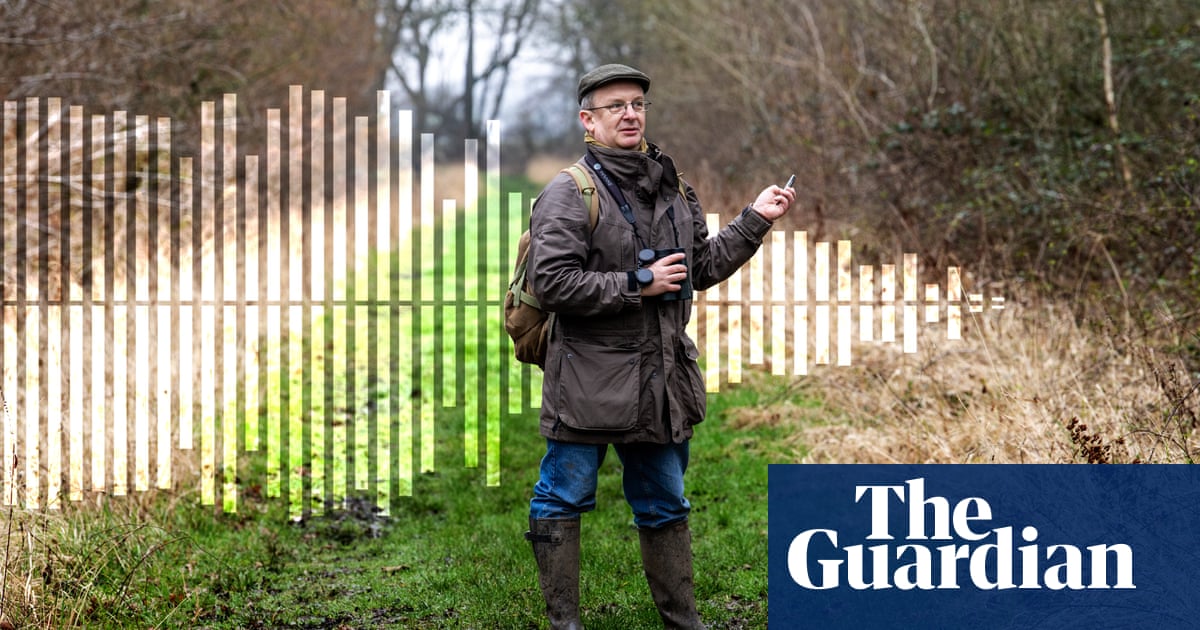
Fresh water is the lifeblood of civilisation. It makes life on land possible. But we have lost touch with how the water cycle works. As Britain runs further into serious drought, people are asking if we are prepared and if we should have planned better, by building more reservoirs or plugging leaks in the water distribution system.
These are hugely important subjects. What is not being discussed are the severe floods that may well arrive in a few months’ time. Climate change is leading to greater volatility in the water cycle. It’s time to stand back and examine our resilience to water extremes and start improving water quality.
One standout conclusion for me is that we need to have much more water in our environment. During the last 100 years, the UK has lost 90% of its wetlands. This has led to the drastic decline of wildlife and rendered the country more vulnerable to the effects of extreme conditions. Draining fens, desiccating peat bogs, drying floodplains and the claiming of coastal marshes has transformed how our land looks and works. Restoring some of those wetlands could deliver huge benefits.
Wetlands can help to keep rivers flowing, even when rain is scarce, thereby protecting the living, shimmering threads that bring life to the landscape. Water standing on the land also helps recharge the aquifers that underpin much of our public water supply. Holding more water in the environment through the restoration of wet ecosystems can reduce flood peaks and protect us from the misery of the flooding that periodically affects communities across the country.
During a recent visit to Norfolk, I saw a newly created beaver pond. The animals had been released by the farmer into a large wooded pen on the site of an old wartime base. A tiny stream had been impounded by the animals to create a quite substantial body of water topped up with winter rain. Since the rain stopped earlier this year, that pond has been sustaining a headwater stream of the Glaven, one of England’s precious chalk rivers. The new beaver pond has helped that wonderful watercourse remain in better shape than it would otherwise have been. When it does rain again, that stream will flow more evenly than if there were no beavers, therefore reducing the risk of floods.
Beaver ponds and wetlands in general are also excellent at catching carbon and other pollutants such as agricultural fertilisers, so they can play a role in meeting water-quality targets. That beaver pond was also a reminder of how wetlands can bring vibrant life back into otherwise degraded landscapes. Frogspawn, fish, birds and wetland plants had all found a home there.
Advertisement
Wetter conditions also diminish the risk and effect of major fires. For decades, many of our upland blanket bogs have been subject to drainage, rendering them more susceptible to fire. Making these bogs wetter can not only reduce that peril but also improve water quality, increase wildlife and reduce downstream flooding.
At Natural England, we are pleased to see lots of plans afoot to make more of wetlands. The new Environmental Land Management schemes that are replacing the EU’s common agricultural policy are a major opportunity. The new tool of biodiversity net gain, which will require developers to replace and increase habitat lost to housing and infrastructure, will add to the mix. So, too, will plans to create new wetlands to soak up nutrients from new housing developments. There is a national programme to improve peatlands and also a partnership with businesses, vigorously led by the Wildfowl and Wetlands Trust, to create 100,000 hectares (247,000 acres) of new wetlands.
There are also opportunities for water companies in the development of nature-based solutions, which harness habitat creation as a natural partner and complement to hard infrastructure. There could also be huge benefits in the careful design of engineering infrastructure such as reservoirs. One example is the Abberton reservoir in Essex, which is not only a major strategic water supply asset, it is an internationally important habitat for many bird and amphibian species.
A more natural water cycle should be a strategic national priority. Winston Churchill famously once said that we should “never let a good crisis go to waste”. The current drought, and the floods that are likely to arrive later in the year, should be an opportunity to find a new way of looking at water.
Tony Juniper CBE is the chair of Natural England












